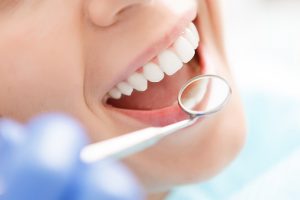
The fact that there are many people out there, whose only interaction with the healthcare system is a dental visit, shows how important a dental screening can be to spot substance use disorders.
But the study revealed an important impediment in the attitudes of dentists that could potentially restrain the role of the dentist’s clinic as a screening venue for substance misuse.
As part of the study, the team led by Lisa Metsch, Ph.D., principal investigator and Stephen Smith professor and chair of the Department of Sociomedical Sciences, analyzed data from a sample of 1,802 U.S. dentists in general practice. They got the data from a 2010-11 American Dental Association Survey, thus capturing a wide profile of the U.S. dental workforce.
According to Metsch, people are starting to recognition the need to better integrate oral and systemic health, but at the same time there were many questions about the feasibility of conducting screening and testing along with dental care.
Among the dentists who were pro substance-misuse screening as part of their professional role, a healthy 86 percent were likely to question their patients about drug misuse. And of the dentists who did not accept such screenings as their responsibility, only 68 percent were likely to question their patients about misuse.
The age of each dentist was also a factor. Younger dentists were more likely to report that their health history form included questions about substance misuse than those who were older.
Among dentists under the median age of 53, 62 percent were also more apt to say that illicit drug use screening should be part of the dentist’s role. Whereas in dentists over the median age of 53, that percentage dropped to 47. Again, the dentists who graduated recently were more pro screening for substance misuse than dentists who graduated long ago.
Another factor that came into play was gender, as seen in the disparity between male and female dentists towards drug screening. Among female dentists, 61 percent agreed that illicit drug-use screening should be their responsibility. Among male dentists that percentage dropped to 52.
The role of dentistry in drug screening is quite crucial as dentists can easily spot drug misuse. For example, methamphetamine users often display excessive tooth decay, faster tooth wear, non-specific gum disease in an advanced stage, loss of many teeth and an overall unhealthy dental profile with a bad prognosis. When these users come in for temporary cosmetic dental treatment, such as veneers and whitening, it is a great opportunity to discuss and prevent substance misuse and provide referrals for rehabilitation and treatment.
Another important aspect is that users take advantage of dental prescriptions to satisfy their substance needs. Because dentist prescribe a lot of opioid painkillers, substance-seekers will complain of pain not consistent with the nature of their dental condition. They also frequently report lost prescriptions for pain medications.
To make substance misuse screening compatible with the dental setting, there is an urgent need for regular two-way communication between patient and dentist. Surveys show that patients are open to receive dentists’ ‘chair-side’ advice for conditions like HIV, heart disease and diabetes. This should encourage further studies that identify how patients react to dentists’ advice about substance misuse. At the same time, dentists will need to brush up on their awareness and knowledge of substance misuse so they can be comfortable while discussing misuse with the patient. They must also be able to make appropriate referrals to rehabilitation and treatment where necessary.
Sources:
https://www.mailman.columbia.edu/public-health-now/news/dentists-tapped-new-role-drug-screenings